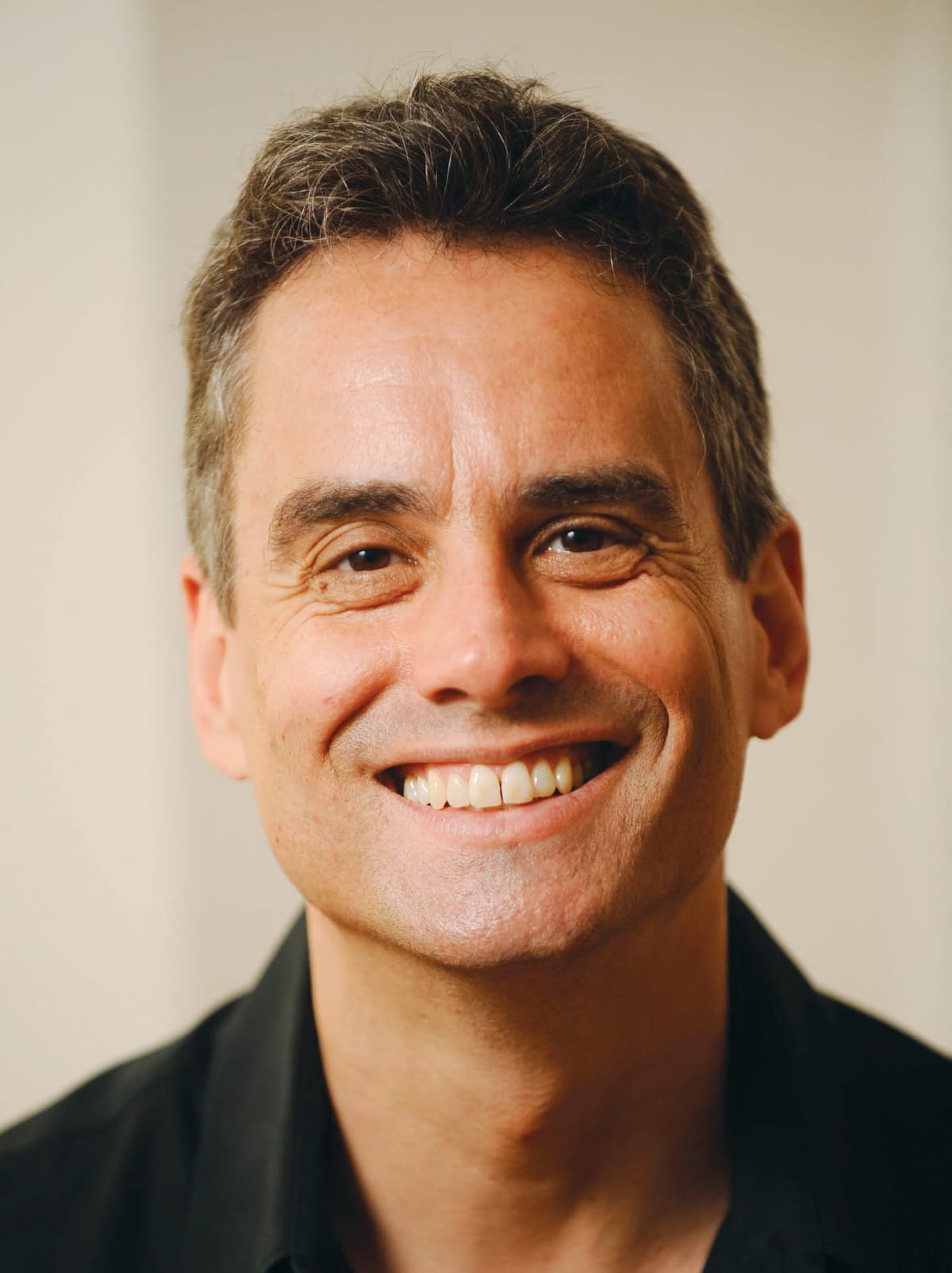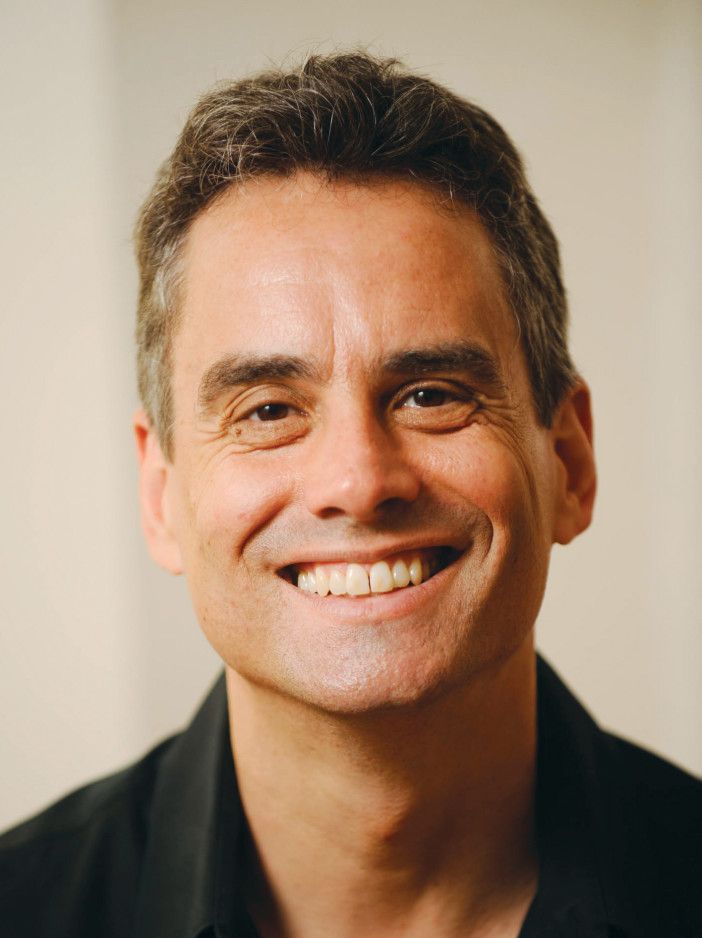Local Author Gabriel Cohen Discusses The Neighborhood And What It’s Like To Write About Crime


A few weeks ago, a post asking readers to name their favorite novel set in the neighborhood drew several comments. One was a recommendation for The Ninth Step, the most recent book in Gabriel Cohen’s series of novels about Brooklyn homicide detective Jack Leightner.
In addition to investigating a murder in the area, it turns out that Cohen’s protagonist grew up in Red Hook and lives in a Midwood apartment. Given the vivid descriptions of a variety of South Brookyn neighborhoods that turn up in the four novels in the series, it’s not a surprise to learn that Cohen himself lives in Ditmas Park.
A journalist, teacher, and freelance editor as well as a novelist, Cohen has written for the New York Times and Time Out and Narratively and teaches writing at Pratt Institute. Coming full circle, he talked with us about Brooklyn, about his fiction, and even about our comment section in a recent interview.
DPC: The descriptions of various Brooklyn neighborhoods in the Jack Leightner novels help make the books distinctive, similar to the way Charles Willeford used Miami and its suburbs in his Hoke Mosely series. Were you born in Brooklyn? Do you have to do research to create the local color, or is that just the benefit of your experience living in the city?
Gabriel Cohen: I wasn’t born in Brooklyn, but have lived here for 26 years. The detective in my crime novels works for the Brooklyn South Homicide Task Force (a real squad), which means he gets to travel all over the southern half of the borough—which means I got to write about a lot of different neighborhoods, from Boerum Hill to Brighton Beach, Fort Greene to Mill Basin, Sunset Park to Ditmas Park. I love to roam real neighborhoods and record real details. In Bay Ridge, for example, I went to a pier and watched two young fishermen freak out when they caught a flounder—they thought it was a fish mutated by exposure to a nuclear power plant. Their dialogue made it into the first chapter of my book The Graving Dock.
You do mention doing some research for a historical incident that provides one of the plot points in The Ninth Step. Have you also done research on police procedure or forensics?
I’ve talked to real homicide detectives and patrol cops, and I love to include lots of real information about procedure and forensics. I’m always thrilled when a cop tells me I got the job right. And I love doing research in general. The Ninth Step is set in the present day, but the story makes use of the historical fact that a munitions ship called El Estero caught fire and almost blew up in New York Harbor in 1943—if it had exploded, it would have had the force of a nuclear explosion and wiped out a big chunk of downtown NYC and harbor-side New Jersey. I also focused on the fact that my Muslim neighbors in Ditmas Park and Kensington suffered a great deal of discrimination in the years after 9/11.
You’ve mentioned that you’ve lived in Ditmas Park for about ten years. Have you learned anything about it that a detective might overlook? What’s your take on the neighborhood generally?
I love the fact that you can come up out of the subway here and it feels as though a Star Trek transporter suddenly brought you to some picturesque Southern town. And I love the fact that the area still has such a mix of people from different economic and ethnic backgrounds—it hasn’t been completely overrun by young white hipsters and Wall Streeters, like other Brooklyn neighborhoods. I read the Ditmas Park Corner on a daily basis. I love the sense of community and connection that I get from it. (Though the comments section sometimes seems to generate a rather amazing amount of vitriol, as neighborhood blog comments sections tend to do—I wrote about that for the New York Times a few years ago.)
Has Ditmas Park changed a lot since you’ve lived here? Sometimes it feels like Brooklyn has changed a lot in the past ten years, but that we’re now on the verge of even greater change than we’ve seen so far. What do you think Brookyn will be like in 2025?
I moved to New York in 1989, and used to visit for years before that. I’m appalled by real estate prices now. When I moved to NYC aspiring artists and writers and musicians—not to mention working class families—could afford to live in many places. Now there’s this bizarre rush to provide swanky apartments for hedge fund managers and absentee foreign oligarchs—and it’s terrible for New York’s cultural scene, for lower-income workers, and for New York’s traditionally diverse character.
In one of the novels, you mentioned that homicide detective Jack Leightner moved to Midwood after his divorce because the lack of violent crime in the neighborhood was important for someone who had to deal with murder and mayhem on the job. What do you think he would make of the spate of violent crime Ditmas Park has experienced in the last year or so?
I think our recent “crime wave” might have been a bit of a fluke, but I also believe that when New York’s poorer residents get increasingly marginalized and they live right next to wealthier people, conflict and crime are going to result. That’s good for crime novelists, but not good for our neighborhoods. (Though many people seem to believe that crime is a strictly personal moral failure, it has deep social and economic and historical roots.)
The death of Jack’s brother Petey is a major element in the first novel of the series, but it isn’t completely resolved until the fourth (and most recent) book. Did you have a complete sense of Leightner’s story arc when you first began writing about him, or were there themes that developed as you worked with the character? Is there more to the detective’s story, or are you through with him?
I didn’t know that the fourth book would shed a whole new light on that tragic incident when I started the series. I’m a fan of series of novels (and TV series) that let characters grow and develop in long story arcs over time, as opposed to having static characters act out similar stories over and over. As for my detective, I’ve moved on to other stories and characters for now, but he’s still alive in my brain…
Besides the detective series, you’ve published another novel (also a Brooklyn story) and a memoir. How was the experience different from working in a particular genre? What are you working on now?
I’ve written a nonfiction book (about surviving divorce) and a “literary” novel, but all of my books are about exploring mysteries. Why do marriages fall apart? Why do people grow up the way they do, and make the choices they make? Why do we feel a need to demonize people who don’t seem like us?
Chris Farrell organizes the 21st Century Book Club that meets at the Cortelyou Branch library on the third Tuesday of each month. For more informaiton, you can email fictioncentury21@gmail.com.



